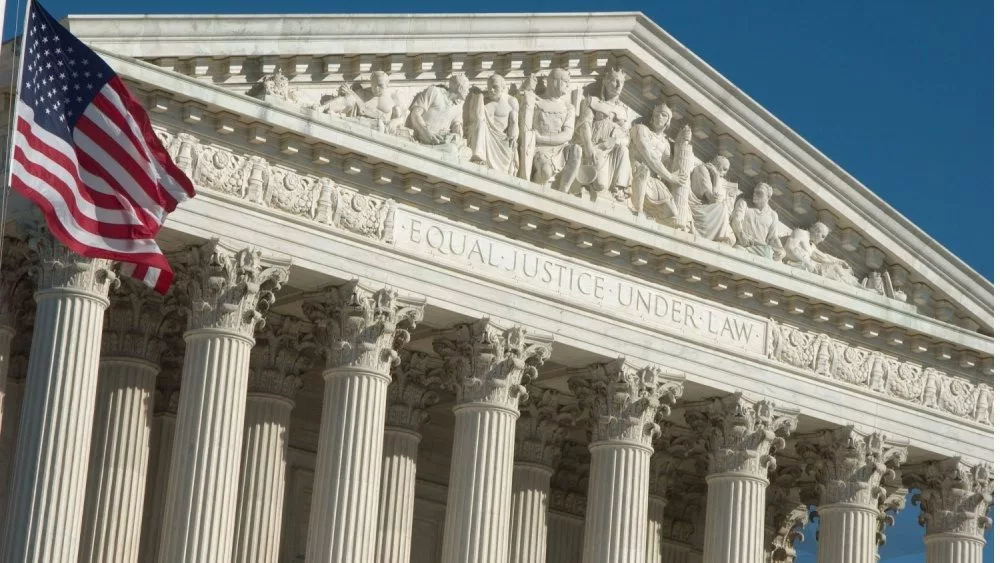
On Thursday, the U.S. Supreme Court ruled in favor of South Carolina’s effort to cut off Medicaid funding to Planned Parenthood. The case centered on whether recipients of Medicaid, a joint federal and state health insurance program for low-income people, may sue to enforce a requirement under U.S. law that they may obtain medical assistance from any qualified and willing provider.
In a 6–3 decision, divided along ideological lines with conservative justices in the majority, the Court determined that the federal law in question does not grant Medicaid patients the authority to bring lawsuits against states to enforce their right to provider choice. Justice Neil Gorsuch delivered the opinion for the court, with the three liberal justices, Sonia Sotomayor, Elena Kagan and Ketanji Brown Jackson, in dissent.
Justice Gorsuch wrote the majority opinion, which also potentially opens the door for other Republican-led states to pursue similar actions. The ruling effectively curtails the ability of Medicaid enrollees to challenge such decisions in court. Gorsuch wrote: “[t]he decision whether to let private plaintiffs enforce a new statutory right poses delicate questions of public policy. New rights for some mean new duties for others. And private enforcement actions, meritorious or not, can force governments to direct money away from public services and spend it instead on litigation. The job of resolving how best to weigh those competing costs and benefits belongs to the people’s elected representatives, not unelected judges charged with applying the law as they find it .. Congress knows how to give a grantee clear and unambiguous notice that, if it accepts federal funds, it may face private suits asserting an individual right to choose a medical provider,” but “that is not the law we have.”
In 2018, Republican Governor Henry McMaster signed an executive order barring Planned Parenthood South Atlantic, the regional branch of the organization, from offering family planning services through Medicaid. McMaster said in a statement after the ruling: “Seven years ago, we took decisive action to uphold the sanctity of life and assert our state’s values. Today, our stance has been vindicated.” South Carolina received support from 18 other states in the case.
In her dissent, Justice Ketanji Brown Jackson, joined by the Court’s two other liberal justices, argued that the ruling continues a troubling trend of weakening the 1871 Civil Rights Act. The law was originally passed in the aftermath of the Civil War to give individuals the ability to sue over civil rights violations: “[T]oday’s decision is likely to result in tangible harm to real people. At a minimum, it will deprive Medicaid recipients in South Carolina of their only meaningful way of enforcing a right that Congress has expressly granted to them. And, more concretely, it will strip those South Carolinians — and countless other Medicaid recipients around the country — of a deeply personal freedom: the ‘ability to decide who treats us at our most vulnerable.’ The court today disregards Congress’s express desire to prevent that very outcome .. South Carolina asks us to hollow out that provision so that the state can evade liability for violating the rights of its Medicaid recipients to choose their own doctors. The court abides South Carolina’s request. I would not.”
Planned Parenthood sharply criticized the outcome. Paige Johnson, president of the South Atlantic affiliate, called the decision a “devastating blow that undermines fundamental freedoms and threatens to deepen South Carolina’s growing health care crisis;” and Planned Parenthood Federation of America President Alexis McGill Johnson said in a statement that “today, the Supreme Court once again sided with politicians who believe they know better than you, who want to block you from seeing your trusted health care provider and making your own healthcare decisions.”
This case reached the Supreme Court prior to its 2022 decision overturning Roe v. Wade, which ended the constitutional right to abortion. South Carolina at that time enacted a law banning most abortions after six weeks, resulting in significantly reduced access; however Planned Parenthood continues to operate clinics in Charleston and Columbia to offer abortion services in compliance with the state’s new law, alongside other medical services like cancer screenings, contraception, and pregnancy testing.
Editorial credit: Wolfgang Schaller / Shutterstock.com





